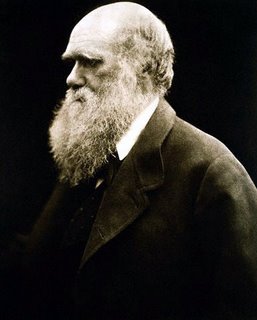Die „merkwürdige Verirrung“ der WSWS beim Irak-Krieg und anderen Angelegenheiten
Ich gebe hier die Kommentare eines Lesers, mdv, und meine Antwort darauf wieder. Ausgehend von seinen Bemerkungen ist es angemessen, ihn als einen Apologeten der SEP-Führung zu bezeichnen. Es ist jedoch bemerkenswert, dass er im Gegensatz zu David North (oder den Talbots) versucht Teile der grundlegenden Kritik zu erwidern, welche wir an der politischen Linie und der Praxis der SEP geübt haben. Beim Versuch die SEP Führung zu verteidigen macht er unbeabsichtigt einige aufschlussreiche Bemerkungen, welche für unsere Leser hervorgehoben werden sollten. Ein weiterer Grund für die Antwort an mdv ist, dass er Ansichten äußert, die wahrscheinlich von anderen SEP Mitgliedern und Unterstützern geteilt werden.
Mdvs Kommentare sind der jüngste Teil eines Briefwechsels der sich zwischen ihm und Andrew River entwickelt hatte. Dieser begann mit Rivers Blog-Eintrag auf permanent-revolution.org über David Norths Rede bei einer Slawistik-Konferenz. Was diesen Briefwechsel angeht, habe ich nichts zu Rivers Bemerkungen hinzuzufügen, und mdvs jüngster Beitrag trägt nichts neues zum Thema bei. Doch vom zweiten Absatz an geht mdv zu einer breiter angelegten Verteidigung der SEP-Führung über, und mit diesen Bemerkungen setze ich mich hier auseinander.
Frank Brenner
http://permanent-revolution.org/polemics/curious_fumble_de.pdf
Ich gebe hier die Kommentare eines Lesers, mdv, und meine Antwort darauf wieder. Ausgehend von seinen Bemerkungen ist es angemessen, ihn als einen Apologeten der SEP-Führung zu bezeichnen. Es ist jedoch bemerkenswert, dass er im Gegensatz zu David North (oder den Talbots) versucht Teile der grundlegenden Kritik zu erwidern, welche wir an der politischen Linie und der Praxis der SEP geübt haben. Beim Versuch die SEP Führung zu verteidigen macht er unbeabsichtigt einige aufschlussreiche Bemerkungen, welche für unsere Leser hervorgehoben werden sollten. Ein weiterer Grund für die Antwort an mdv ist, dass er Ansichten äußert, die wahrscheinlich von anderen SEP Mitgliedern und Unterstützern geteilt werden.
Mdvs Kommentare sind der jüngste Teil eines Briefwechsels der sich zwischen ihm und Andrew River entwickelt hatte. Dieser begann mit Rivers Blog-Eintrag auf permanent-revolution.org über David Norths Rede bei einer Slawistik-Konferenz. Was diesen Briefwechsel angeht, habe ich nichts zu Rivers Bemerkungen hinzuzufügen, und mdvs jüngster Beitrag trägt nichts neues zum Thema bei. Doch vom zweiten Absatz an geht mdv zu einer breiter angelegten Verteidigung der SEP-Führung über, und mit diesen Bemerkungen setze ich mich hier auseinander.
Frank Brenner
http://permanent-revolution.org/polemics/curious_fumble_de.pdf



















